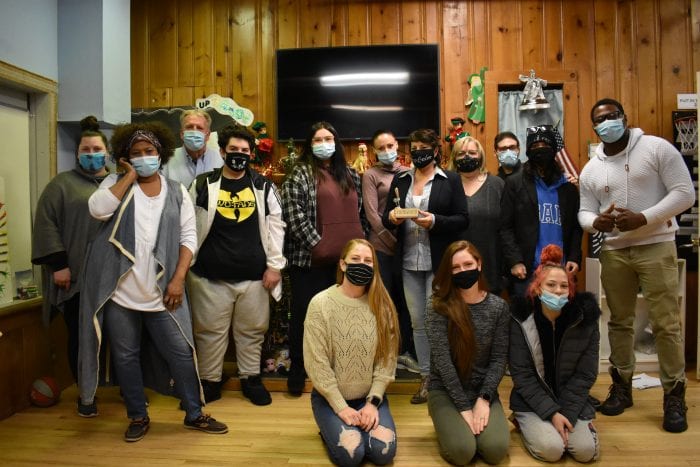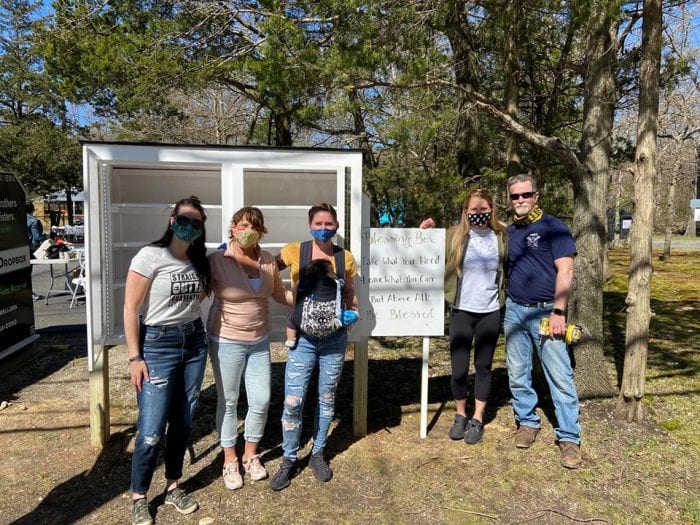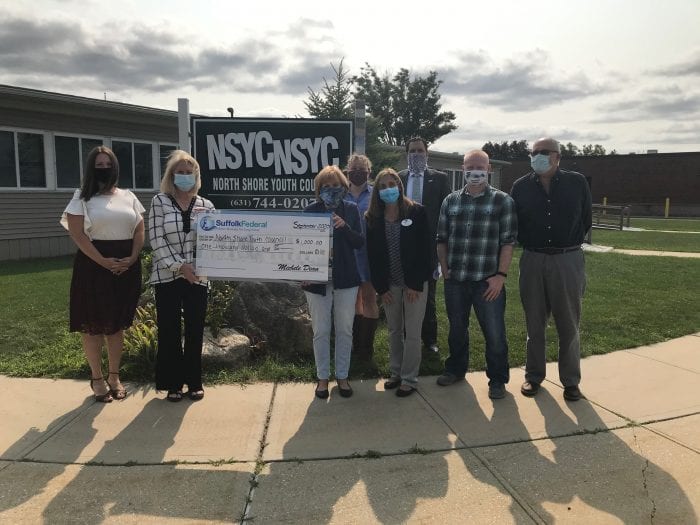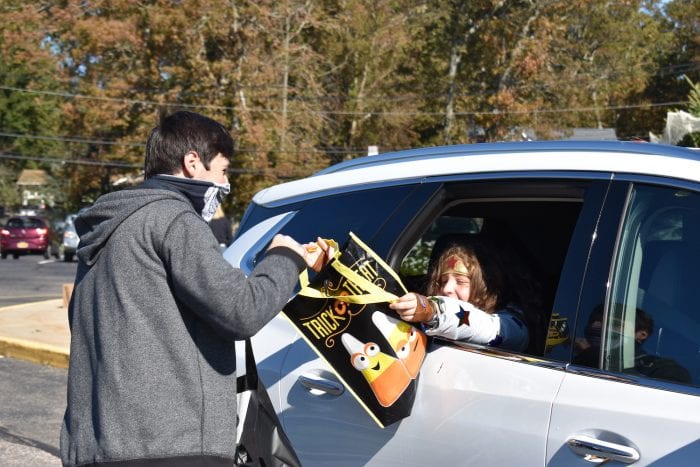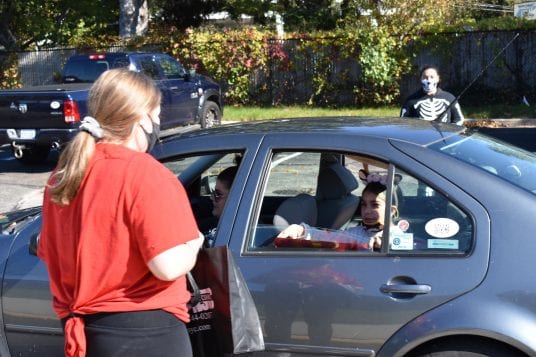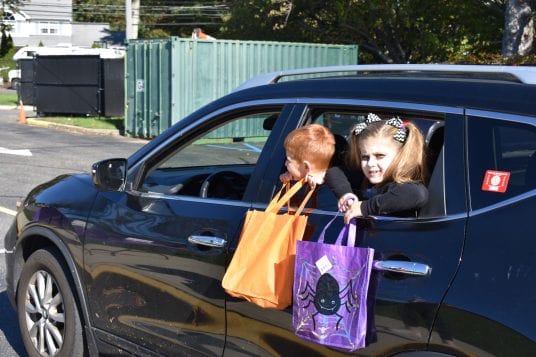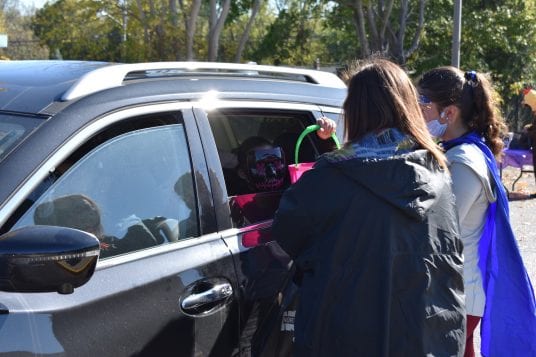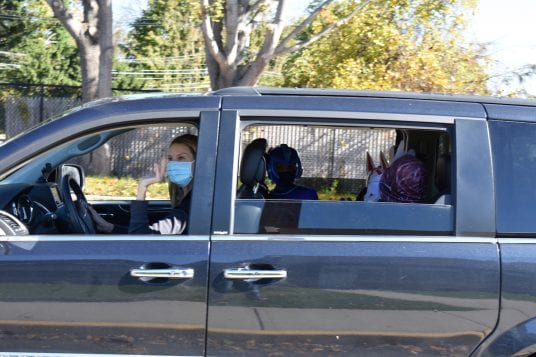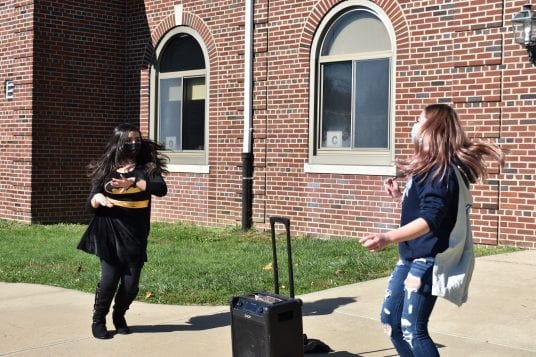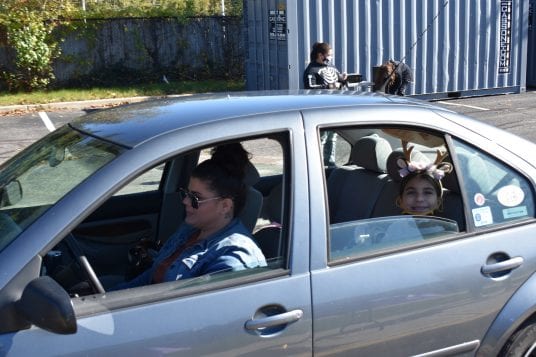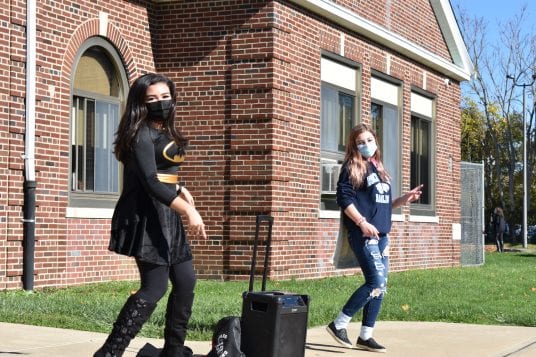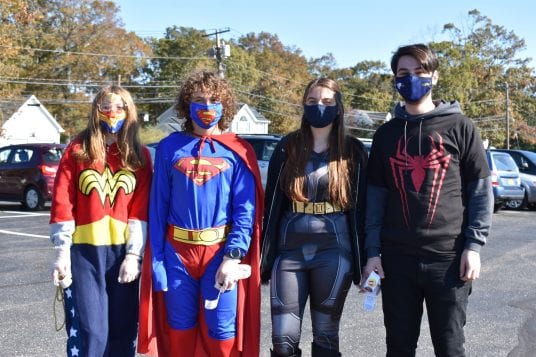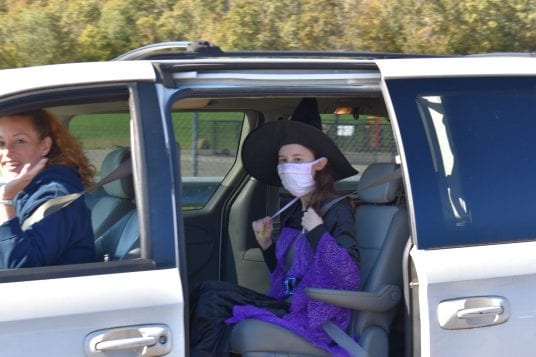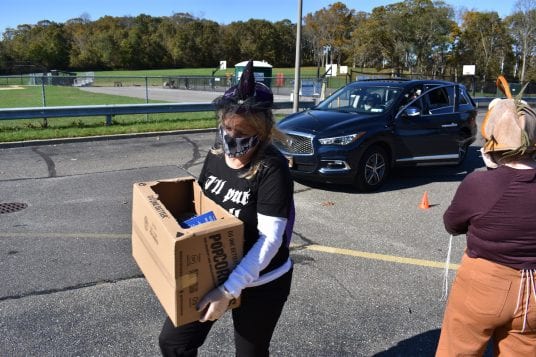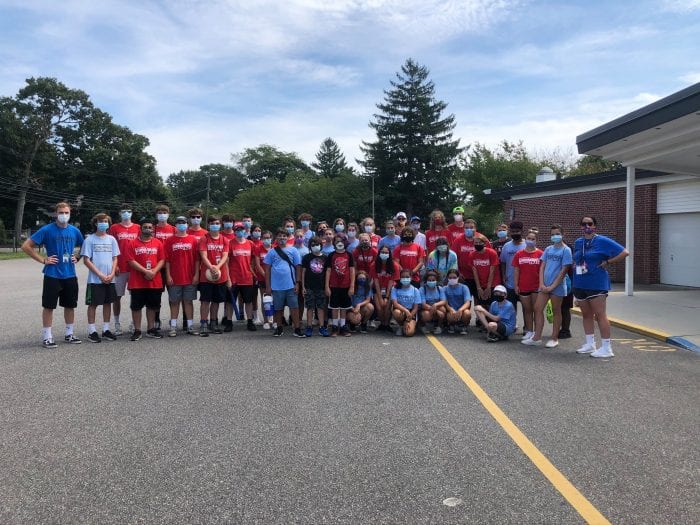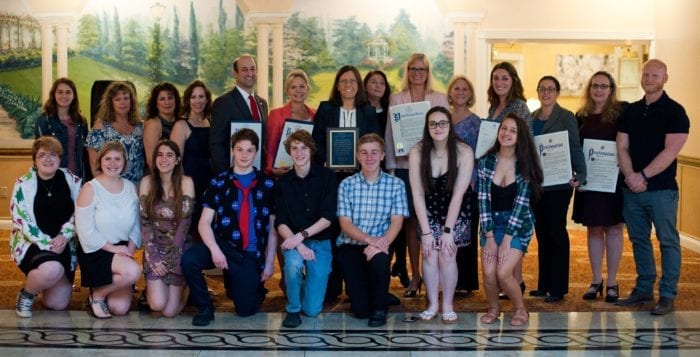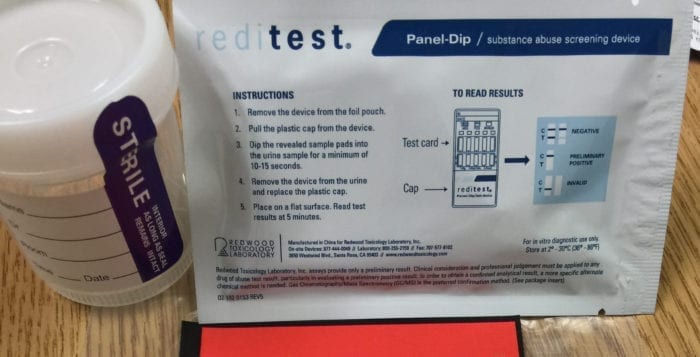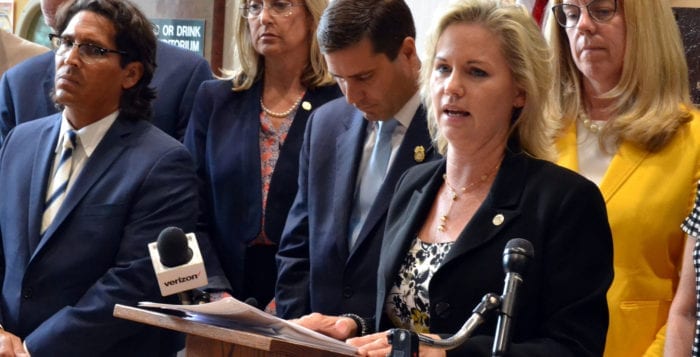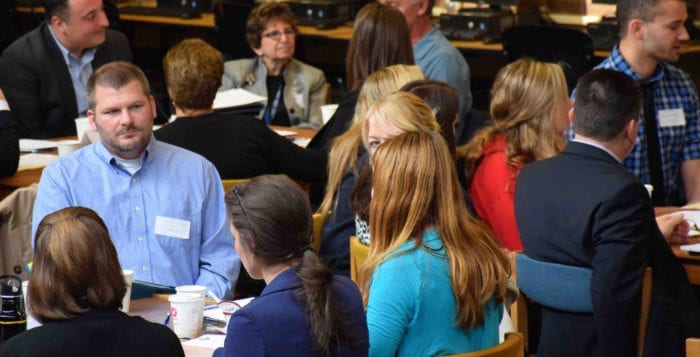When the first weeks of the pandemic hit, when everything from restaurants to gyms to playgrounds were being shut down, schools were forced closed as well.
As the many different districts across Long Island scrambled to implement distance learning, a new crisis loomed. For the many men and women who still worked, especially those on the frontlines in hospitals or elder care facilities, they could no longer depend on school districts to take care of their children for most of the day.
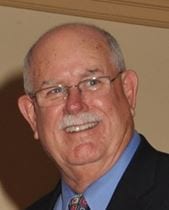
And as parents scrambled to find ways to take care of their children, a few groups stepped up to the plate. Many parents owe a great deal to those organizations that took care of their children during the pandemic’s worst months, many of whom were trailblazers for what kids would come to expect when schools finally reopened in later months.
Organizations from all over kept their child care services going when they were needed most. The Huntington YMCA, while suspending many of its other youth and adult programs, kept running its child care services and food pickups for families. This was even amongst huge economic hardship caused by the loss of membership dues.
Eileen Knauer, senior vice president of operations for YMCA of Long Island, said their child care programs ran for four months out of their Huntington facility as well as a school in the South Huntington school district, up until their summer camp programs started again. While it initially ran free of charge for parents, having been supported by stipends from the school district and Northwell Health, they did end up having to charge parents some cost for the program. For those parents who did not have enough to pay, they fundraised to help support their children.
“The ‘Y’ is here for our community — we respond to what the community tells us we need,” Knauer said.
SCOPE Education Services, a Smithtown-based nonprofit chartered by the New York State Board of Regents, operates child care programs all over Long Island. Though SCOPE normally works with school districts from all over, in March, when districts were mandated to provide child care even while their buildings were closed to normal activity, they turned to SCOPE, according to George Duffy, executive director.
The nonprofit operated 25 locations throughout Long Island to provide that child care, with more than 800 children in total enrolled. From March through August, SCOPE workers kept children in safe spaces, allowing them an opportunity to socialize when many were feeling the emotional constraints of isolation.
Though districts pay a weekly stipend to help run the program, for parents who desperately needed people to take care of their children while working, it was effectively free.
Lori Innella-Venne, a district manager for SCOPE operating in the Huntington area, said it was soon after the closures were coming into effect that she and her workers sat together to come up with a plan, creating something entirely new on the fly, even when restrictions and medical advice seemed to be changing on a daily basis. Despite all that, the program never saw a positive COVID-19 case amongst its children, she said.
“We took one breath when schools closed and we immediately got to work, reimagining how we did everything,” Innella-Venne said.
Over in Rocky Point, the North Shore Youth Council, a nonprofit that services districts from Mount Sinai to Shoreham-Wading River, was also caught up in that first COVID wave that crashed upon Suffolk County. Their summer camp, which featured 100 kids, was so effective in its procedures that it did not see a positive case in the several months the program ran.
NSYC Executive Director Robert Woods said they also had the benefit of good relationships with the Rocky Point school district, and that it was the district’s custodial staff who were “rock stars” in helping to prepare children for these activities.
It was difficult, of course. Children could not even play board games together. Innella-Venne said they had to draw up an entirely new curriculum. Activities had to focus on being spaced apart. Equipment that was once shared now had to be restricted to individuals, and then sanitized after use.
“When we were still waiting for guidelines to come out, we already had a fully realized program, one that we found well within the guidelines and in some cases exceeded them,” she said. “There was fear in the beginning, but also incredible pride for what we were able to accomplish.”
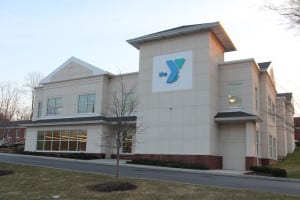
Once school started again, the demand for child care did not relax. The youth council’s afterschool program now follows in the footsteps of the local school districts’ cohort system, following those so that they don’t mix students who may have been kept separate for a significant time. They also developed a kind of study hall for those students in the hybrid model who are studying electronically, allowing parents to work even when their children are not allowed inside schools, according to Cyndi Donaldson, the youth council’s school-age child care program director.
Knauer said the YMCA has also started a program to allow children a place to do their remote work while their parents are at their jobs. Though that program had stalled once students were allowed back in school full time, it will likely start up again after December as the number of COVID cases climb and local districts expect to take a longer-than-normal Christmas break.
“If you’re a working parent, you don’t have the luxury of taking time off,” she said.
There are so many stressors with young people having to deal with so much, whether it was hearing the news and the number of people dying, or it was seeing the anxieties of their parents. It was especially hard on more at-risk kids, the kind of population serviced by The Sunshine Center in Port Jefferson Station. Carol Carter, CEO/co-founder of the organization, said they had to transfer much of their child care services online once the pandemic struck, whether it was live on Facebook or YouTube, or constant calls to catch up with parents and their children on what was happening. They took to driving out to children’s households with homework and activities or even food, trying to keep those participants engaged. The center created a blessing box where needy parents could pick up supplies and food that were donated by the wider community.
“We knew immediately how important support was through this time,” she said. “Our main focus was on positive social skills. People were feeling anxiety and other tough feelings, so developing coping skills, problem-solving skills and communication skills that kids could use during this time was important.”
All program directors agreed that their services provided a kind of stability for children during a tumultuous year.
“A parent said to me the other day that our programs are the only constant in their childs’ lives,” Woods said. “Their children look forward to coming to our programs, they are able to socialize in a different way. They are a thriving testament to what [our organization] does.”
Just like many businesses and other organizations during the pandemic, COVID has hurt their bottom line. Knauer said the YMCA is currently running at 50% below their normal revenue, as membership dues have dropped off significantly. She said anybody looking to start memberships or to donate can contact her through the YMCA at 631-421-4242.
Other programs also operated at a loss.
“SCOPE ended up losing money,” Duffy said. “We thought they were going to be running this for four-to-six weeks. We ended up running it for six months.”
But for the nonprofit service, the point was to provide that niche when it was needed.
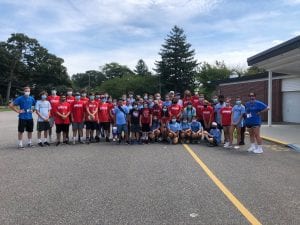
“We felt it was a valuable service that benefited families and the community,” Duffy said. “We were happy to do it — it kept people employed who would have been forced to do something drastic, like leave their job.”
The child care services were truly the first bulwark of dealing with children and students in a pandemic. Both SCOPE and NSYC officials said school districts reached out to them when coming up with their own procedures when reopening in September.
“A lot of school districts looked at what we did over the summer, asked for our input, and a lot of what they’re doing now is what we did in March,” Duffy said.
The work of these and other groups has been recognized by both school districts and parents. SCOPE has received numerous positive comments from superintendents from Brentwood to Middle Country to Comsewogue. One of the districts SCOPE operated in was Miller Place, where Marianne Cartisano, the MP superintendent, said her district would not have been able to come out of the first-wave months still with their feet under them if it weren’t for Duffy and his program.
“Parents would come back and say, ‘I didn’t worry about my child today,’” Cartisano said.

